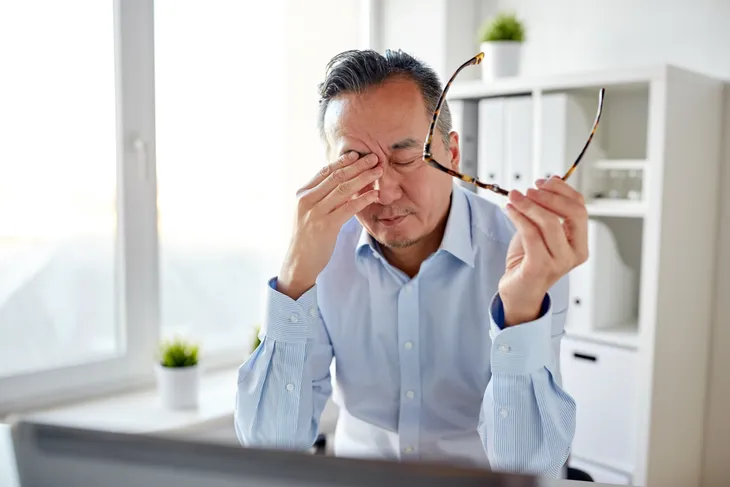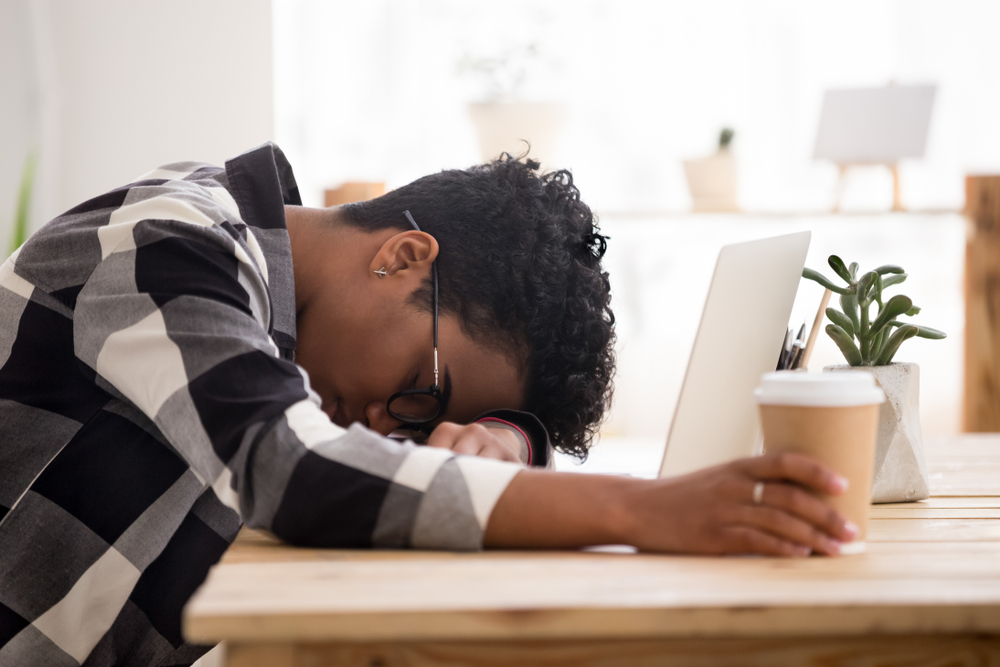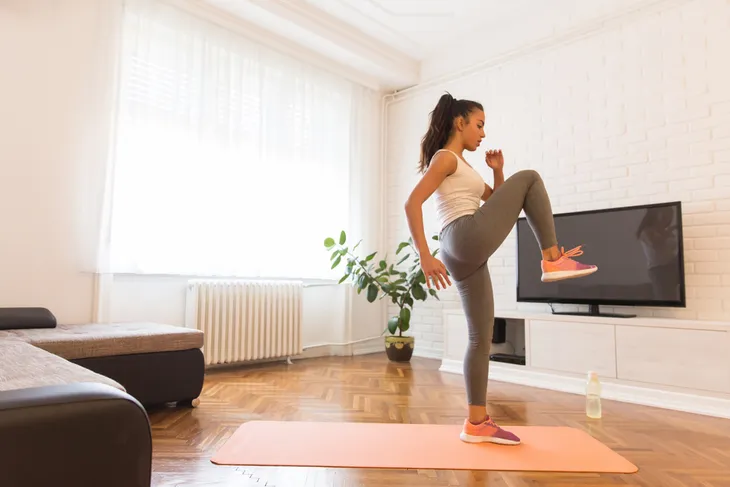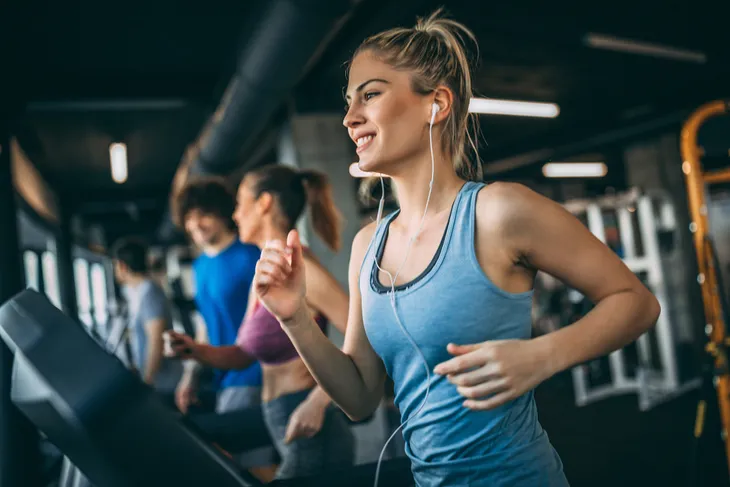Humans need less sleep than our closest evolutionary relatives. However, we often sleep less than we need.
Needing less sleep is a consequence of our ancestors’ choices to remain awake longer — a behaviour that led to evolutionary benefits. Sleeping less than we need is the result of our modern-day choices to remain awake longer, but in this case the behaviour is detrimental to our health and well-being. Our research, however, finds that fitness may be a helpful tool for coping with sleep deprivation.
Less sleep needed: An ancestral gift
Our ancestors traded sleep for productive nightly activities like exchanging cultural information to gain social and individual learning, watching for predators and strengthening bonds with peers. This learning had evolutionary benefits and led natural selection to favour shorter sleep durations. Humans are outliers, however, needing sleep for only seven hours, far less than the predicted 9.55 hours of sleep for a primate with similar traits to ours. Our ability to thrive with longer waking hours is thought to be possibly due to our highest proportion of efficient, dreamy REM sleep amongst all studied primates and brain anatomy changes that facilitate essential housekeeping functions of sleep (like removal of toxins) in a shorter span. This ancestral choice to sleep less was worthwhile (although some speculate that it may also have had drawbacks).
Less sleep available: A modern misery
In an extreme example of sleep deprivation, in 1964 Randy Gardner broke the world record by staying awake for 11 days. His wake-a-thon bit him back years later in the form of unbearable insomnia that changed his personality. He referred to it as a “karmic payback” in a 2018 interview with NPR’s Hidden Brain podcast.
The year 1964 was a time when the necessity of sleep may not have been preached enough as the role of sleep in processing emotions and memories, preserving the body’s immune and hormonal functions, and wringing out its toxins was less well understood.
Today, despite knowing its benefits, humans still willingly sacrifice sleep. We forgo sleep to pull an all-nighter in preparation for an exam or a meeting, binge-watch TV shows, conform to the sleeplessness trend of the modern culture or scroll through social media.
Sleep is not a luxury for people who must face sleep disorders, socioeconomic sleep disparity, new parenthood or work obligations of pilots, health-care workers and others with irregular hours. One-third of Americans and Canadians are short of sleep.
Considerable research shows that sleep deprivation impairs communication between brain regions and brain blood flow, damages brain wiring and makes a young brain look like an aged brain. For humans, compromising sleep to be productive is counterproductive. It compromises our best performance, attention, decision-making abilities and memory. We risk road and industrial accidents, psychiatric illnesses, dementia and cardiovascular diseases, costing governments billions of dollars annually.
For our evolutionary ancestors, sleep was costly because it risked being vulnerable to predators and limited the time to engage in productive activities. Today it is the lack of sleep that is costly because sleep is essential.
Sleep research pioneer Allan Rechtschaffen noted: “If sleep doesn’t serve an absolutely vital function, it is the biggest mistake the evolutionary process has ever made.”
 Ground Picture/Shutterstock
Ground Picture/ShutterstockCountermeasures against sleep deprivation
An easy fix is to sleep more. But it is a far-fetched goal. Today, getting even an hour or two of extra sleep is challenging.
Policies must intervene to address sleep-related issues. For example: pushing the school start time later to match teens’ circadian rhythm (teens are not night owls by choice) or abolishing daylight savings, reducing work hours for essential professions, implementing evidence-based regulations for nightshift work, defining and normalizing sleep health.
But until policies change, how can we better cope with sleep loss?
Protective power of fitness
A recent study by our team of researchers at McGill University’s MEMORY lab, led by master’s student Beatrice Ayotte, may have identified a protective factor. The research team — ironically while getting sleep-deprived — showed that people who were more physically fit performed better at a memory task compared to people with lower fitness levels after a night of sleep loss.
Fitness was measured as the ability of the participants’ heart and lungs to supply oxygen and their muscles’ ability to use it while exercising. This is referred to as cardiorespiratory fitness, as opposed to muscular fitness. For this, in the gym-like laboratory, healthy 18-to-35-year-olds biked with increasing resistance until exhaustion. They wore masks with tubes hooked to a computer that measured VO₂peak — the volume of peak oxygen consumption. A higher VO₂peak indicates better fitness.
The fun part was when one group of participants spent one night in the lab staying awake, without caffeine, doing mild activities and a lot of talking with the researchers who supervised them. Participants were asked to stay awake for 30 hours, which is brutal but distressingly common among essential workers.
After their wakeful period, participants viewed some images. Four days later, they were given a surprise memory test. Participants who remembered more images scored higher on this memory task.
Sleep deprivation, as expected, had significantly decimated participants’ memory, as reflected in their poorer memory scores compared to the well-rested group. But what’s interesting is that, in the sleep-deprived group, most of the high memory scorers were also highly fit. This indicates that fitter people had some leverage in the sleep-deprived situation.
One interesting finding is that the association between VO₂peak and memory scores was not explained by the participants’ levels of fatigue and attention. So it was not that fitter people could endure more fatigue during sleep deprivation and therefore performed well. Fitness was working in their favour in a different way.
Research has shown that people with higher cardiorespiratory fitness tend to have better brain connectivity and cognition. These brain changes could be one of the many mediators of the association found in this study.
Exercise caution
We cannot conclude that higher fitness is a cause of memory protection during sleep deprivation. Other healthy habits of fitter participants such as good sleep hygiene, higher cognitive reserve and healthy diet may have contributed to their better memory performance despite sleep loss.
However, animal research has shown that aerobic exercise training — which increases cardiorespiratory fitness — can protect against the detriments of sleep deprivation. These findings synergize with our own and suggest possible forward steps in dealing with the epidemic.
Compromising sleep has not served our ancestors and us equally. Nature’s incessant drive to choose sleep underscores its irreplaceability. But today, if you decide to run a wake-a-thon, it is advisable to stay fit!
Madhura Lotlikar, Ph.D. student, Neuroscience, McGill University
![]()
This article is republished from The Conversation under a Creative Commons license. Read the original article.





